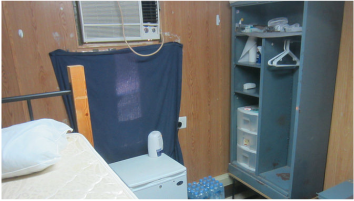
The most pressing issue in my mind at this time of year as kids begin the process of actually moving into college life by deciding which college to attend and settling into the details about how all of that "happens" is related to alcohol and drug use. If you haven't impressed your expectations and family values on your kids until now because you haven't really had to address it, get talking.
It's at this point in my conversation with parents that they start seeing all of the money they'll lose if they have to bring their student home. It's their choice and a lot of variables go into that choice. The most valid variable here is history. Past, relevant behavior is the best predictor of future behavior. What has your student's behavioral history been and how will that history impact their behavioral choices in college? And, you know me, what question am I going to pose to parents? "Can you live with the consequences?"
Make certain that your daughter knows about Plan B (the morning after pill) if a condom fails or she has had unprotected sex. You may not be happy with the discussion, but consider the consequences. None of it is pretty. Have the conversation. Give her tools to protect herself. These medications are likely to be free of charge. You can have all of the "conversations" later, but first things first.
Red Bull and other stimulant drinks have led to very nasty interactions with medications, drugs and alcohol.
DON'T BE THAT PARENT WHO THINKS THEIR DARLING CHILD IS NOT GOING TO GO TO COLLEGE WITHOUT HAVING THE FULL COLLEGE EXPERIENCE.
YOU CANNOT CANNOT LIVE WITH THE CONSEQUENCES.
There, I feel better now.

Your student who is taking medication needs to understand the consequences of skipping doses and doubling up on missed doses. Control the controllable and get the answers.

I have a list of about 23 accommodations from which I choose to match the data that is generated from the assessment. Some of my most frequently recommended accommodations include:
- Extra time on tests
- Taking tests in the learning center
- Priority registration to accommodate extra time on tests (can't have classes back-to-back)
- Class notes
- Preferred seating
Since colleges are interested in retaining their students and since students are not a captive population, many have very highly-developed support programs and well-trained staff. Workshops in organizational skills, study techniques, improving writing skills and reading comprehension have proven to be beneficial to my clients. The staff can also help your student to advocate when encountering an unreasonable professor.
I encourage (OK, let's be honest, I pretty much threaten them) not to take too many classes, especially for the first year. There's just too much for them to adjust to and we want them to explore their interests and have time for social activities. I recommend that they take two "light" classes and two "serious" classes or whatever combination works to make them full-time students. Ask the staff at the learning center.
For many of my students, this is the first time in their entire educational career that they've had a chance to enjoy education and get off the "hamster wheel" of 6 classes a day and homework all night and weekends. They can become a little too relaxed with "all the time" they have and will soon learn their lessons after a few "scares". For many, they finally get to experience authentic success by earning "decent" grades without Mom and Dad helping.
I see college as the "kindergarten" to adulthood. They are out from under the scrutiny of parents, have to deal with a lot of very different people, have to learn to cope without the support of family and master advocating for themselves. There's so much more to learn in college than the curriculum. They are preparing for a career and for the "hidden curriculum of life". Developing sound judgment through experiences is priceless.
Help them get the best start possible. I know you will. Remember, just do the best you can.
TTFN, Claudia





